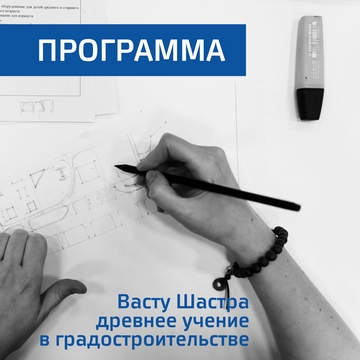Vastu Shastra is an ancient teaching in urban planning

One of the new topics of the 100+ Forum Russia in 2019 will be the construction of cities using Vast and Feng Shui technologies that have not only been proven for centuries, but have also become relevant for the largest cities in the world, such as Singapore, Hong Kong, Seoul.
The tasks of Vastu and Feng Shui are "the harmonization of man-made human habitation space with the surrounding landscape and the deep forces of nature." Vastu's worldview regulates the use of certain geometric shapes as the most suitable for structures of various functional purposes.
The ideas of "green building" and the design of ecological models of the city of the future are similar in their philosophy to ancient Chinese ideas and traditions of Vedic architecture. Many rules and restrictions are explained rationally today and are confirmed from the standpoint of the successful functioning of individual structures or the comfort of urban neighborhoods.
For example, the absence of large planes of buildings intersecting at sharp angles is undesirable according to Feng Shui traditions and is logical for ultramodern skyscrapers, as it avoids excessive wind loads and costs for construction and maintenance of structures. For planning solutions in Vastu logic, the hierarchy of spaces and their geometric outlines are of great importance. These conceptual solutions correlate with the latest scientific urban planning concepts and ideas, the provisions of the theory of "landscape urbanism" and a holistic understanding of the principles of urban space modeling. And if an architect, following the principles of Vastu, compensates for the disadvantages inherent in certain geographical latitudes by enhancing the effect of the necessary energy, in the ordinary sense this means an increase in the level of insolation or compensation for the lack of light in the northern parts of buildings.
Many experts study ancient urban planning principles and traditions and adapt them to modern realities. The speakers of 100+ Forum Russia will talk about individual examples of the implementation of such design models. Invited to participate are Olga Mandodari Sokolova– a Vaastu Shastra consultant from the Brahmarishi Mayan International Institute of Teachings and Technology, Chennai (Madras), Diru Tadani– an American urbanist and architect specializing in effective methods of modernizing existing urban spaces, author of the books "The Language of Cities and Settlements: a Visual Dictionary" and "Community Architecture" (together with Leon Krier), Sergey Baluta, Vice President of the International Society of Urban and Regional Planners (ISOCARP), as well as the author of a study on the principles of Vedic architecture.

